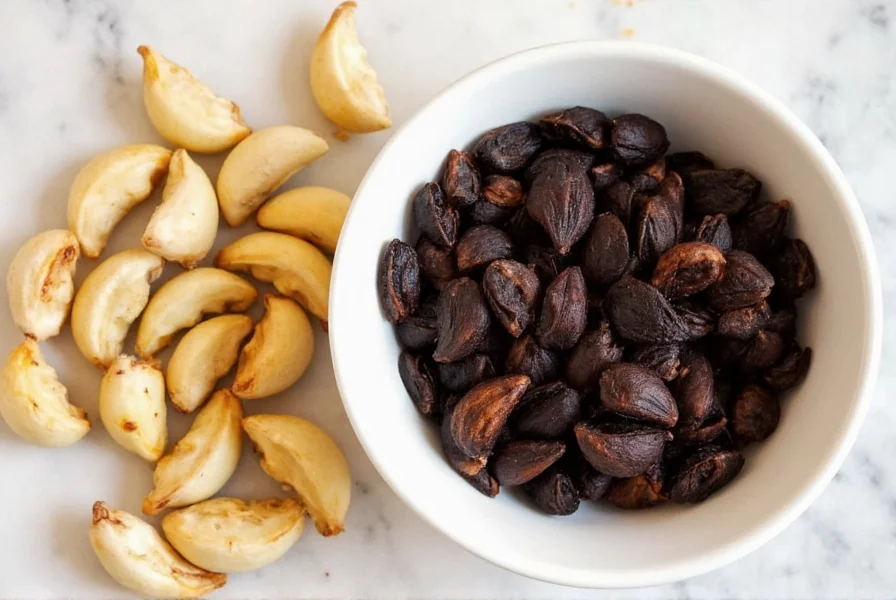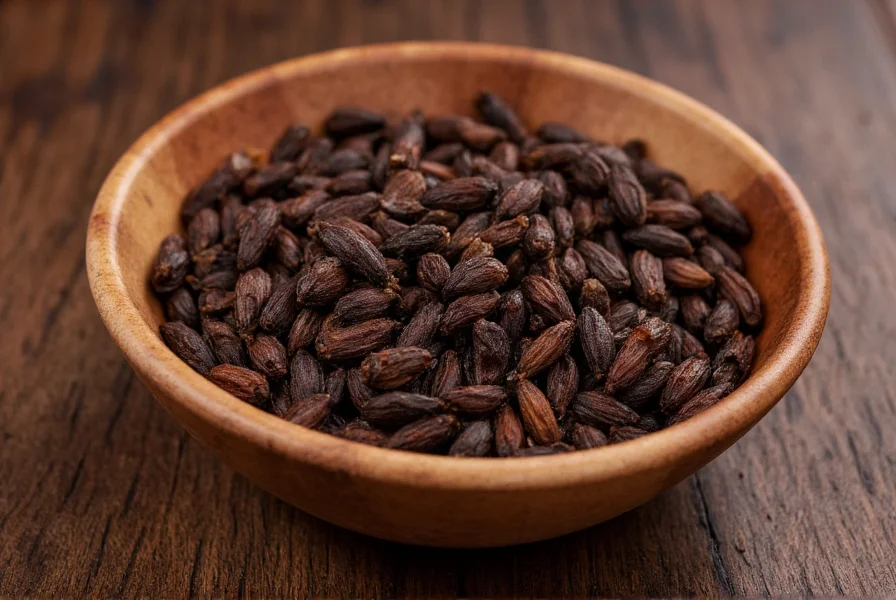Understanding how to properly roast cloves unlocks their full potential in your cooking. Unlike raw cloves that can sometimes overpower dishes with their sharp, medicinal notes, roasted cloves offer a more nuanced flavor profile that integrates beautifully into recipes. This transformation occurs through the Maillard reaction and caramelization of natural sugars during the roasting process.
The Science Behind Roasting Cloves
When cloves meet dry heat, several chemical transformations occur. The eugenol content—which gives cloves their distinctive aroma—becomes more volatile and pronounced. Simultaneously, the natural sugars within the clove begin to caramelize, creating new flavor compounds that add complexity. This process typically requires just 3-5 minutes of careful attention, making it one of the simplest yet most impactful spice preparation techniques.
Step-by-Step Guide to Perfectly Roast Cloves
Roasting cloves properly requires attention to detail. Follow these steps for optimal results:
- Start with high-quality whole cloves—look for plump, dark brown buds with visible oil glands
- Use a dry skillet or cast-iron pan over medium-low heat
- Add cloves in a single layer without crowding
- Toast for 3-5 minutes, shaking the pan frequently
- Remove immediately when you detect a stronger, sweeter aroma
- Cool completely before grinding or storing
Over-roasting causes bitterness, so vigilance is crucial. The cloves should never smoke or darken significantly—they'll primarily change in aroma rather than appearance.
Flavor Profile Comparison: Raw vs. Roasted Cloves
| Characteristic | Raw Cloves | Roasted Cloves |
|---|---|---|
| Aroma Intensity | Moderate | Significantly enhanced |
| Primary Notes | Sharp, medicinal, slightly bitter | Warm, sweet, complex, rounded |
| Heat Level | More pronounced | Mellowed and integrated |
| Best Culinary Uses | Long-simmered dishes, pickling | Baking, spice blends, finishing dishes |
Culinary Applications of Roasted Cloves
Roasted cloves shine in specific applications where their enhanced flavor can make a difference. Professional chefs often use them in:
- Baking: Particularly in gingerbread, spice cakes, and holiday cookies where their sweeter profile complements other warm spices
- Spice Blends: Garam masala, pumpkin spice, and chai blends benefit from the rounded flavor of roasted cloves
- Meat Rubs: Especially for game meats and pork where their intensified aroma penetrates deeply
- Infused Liquids: Syrups, vinegars, and spirits extract flavor more efficiently from roasted cloves
When using roasted cloves in cooking, remember they're more potent than raw cloves. Reduce quantities by approximately 25% to avoid overpowering your dish.
Storage Recommendations for Maximum Freshness
Proper storage maintains the enhanced qualities of roasted cloves. After cooling completely, store them in an airtight container away from light and moisture. For best results:
- Use within 2-3 weeks for peak flavor
- Keep in a dark cupboard (not the refrigerator)
- Consider freezing for long-term storage (up to 6 months)
- Grind only what you need immediately before use
Whole roasted cloves retain their quality significantly longer than ground versions, which lose volatile compounds rapidly.
Common Roasting Mistakes to Avoid
Many home cooks encounter issues when first trying this technique. Watch out for these pitfalls:
- Using high heat: Causes uneven roasting and potential burning
- Leaving cloves unattended: They can go from perfect to bitter in seconds
- Roasting too many at once: Crowding prevents even heating
- Not cooling properly: Residual heat continues cooking them
- Storing improperly: Exposure to air and light degrades quality rapidly

Health Considerations of Roasted Cloves
Cloves naturally contain eugenol, a compound with antioxidant properties. Roasting doesn't significantly alter their nutritional profile but may affect bioavailability. While both raw and roasted cloves offer similar health benefits, the roasting process makes their compounds more accessible during digestion. As with any spice, moderation is key—excessive consumption can cause irritation.
Conclusion: Elevating Your Culinary Creations
Mastering the art of roasting cloves transforms this humble spice from a background player to a star ingredient. The minimal effort required yields substantial flavor rewards, making it a technique worth incorporating into your regular cooking routine. Whether you're preparing a holiday feast or elevating everyday meals, properly roasted cloves add that professional touch that distinguishes thoughtful cooking from ordinary meals.
What's the difference between roasted cloves and regular cloves?
Roasted cloves undergo a dry-heat process that enhances their natural flavor compounds, resulting in a deeper, richer, and slightly sweeter aroma compared to raw cloves. The roasting process reduces their natural bitterness while intensifying their warm, spicy notes through the Maillard reaction and caramelization of natural sugars.
How long should I roast cloves for optimal flavor?
Roast whole cloves in a dry skillet over medium-low heat for 3-5 minutes, shaking the pan frequently. Remove them immediately when you detect a stronger, sweeter aroma—typically when they become noticeably more fragrant but haven't significantly darkened. Over-roasting happens quickly and causes bitterness.
Can I roast ground cloves instead of whole ones?
It's not recommended to roast ground cloves as they burn extremely quickly due to their increased surface area. Always roast whole cloves first, then grind them immediately before use for maximum flavor impact. Ground cloves lose their volatile compounds rapidly after grinding.
Do roasted cloves have different health benefits than raw cloves?
The nutritional profile remains largely similar, but roasting may improve the bioavailability of certain compounds like eugenol. Both forms contain antioxidant properties, though the roasting process doesn't significantly alter their fundamental health properties. As with any spice, moderation is important regardless of preparation method.
How can I tell if I've over-roasted my cloves?
Over-roasted cloves develop a bitter, acrid smell instead of their characteristic warm, sweet aroma. They may appear significantly darker or show signs of smoking during the roasting process. If you notice any burning smell or visible charring, the cloves are overdone and will impart bitterness to your dishes.











 浙公网安备
33010002000092号
浙公网安备
33010002000092号 浙B2-20120091-4
浙B2-20120091-4